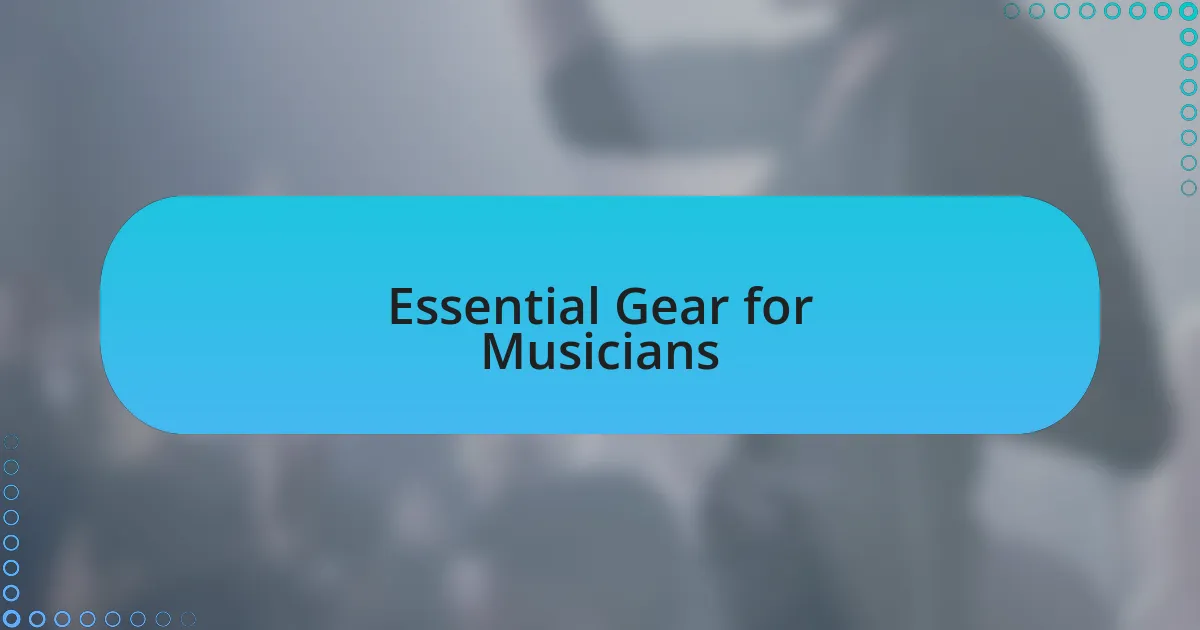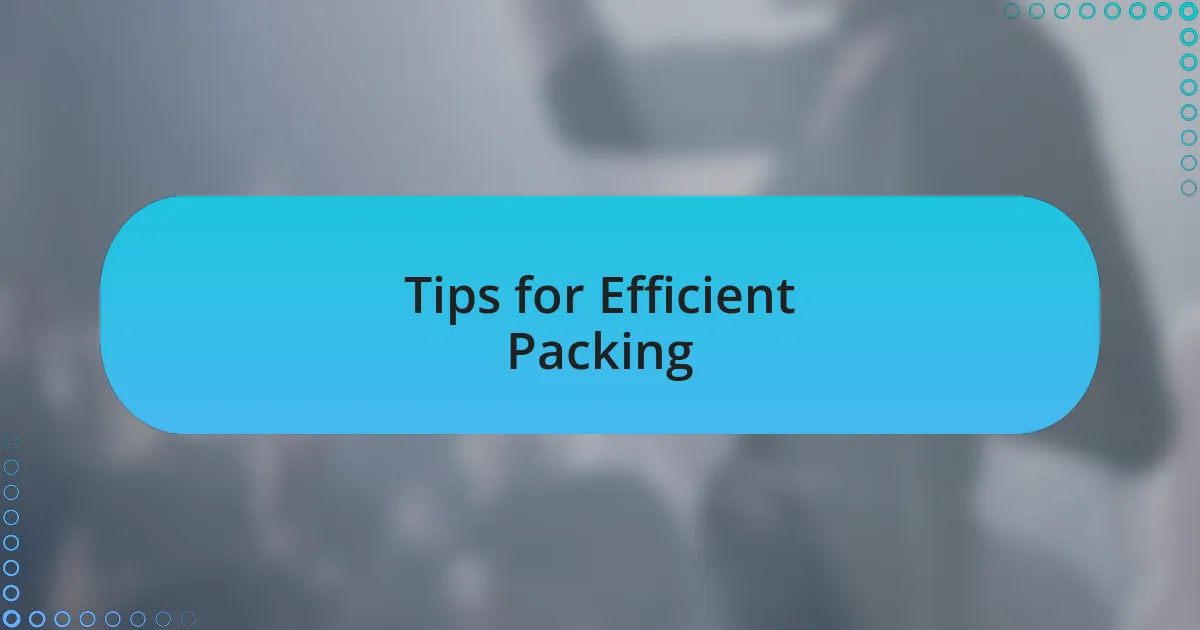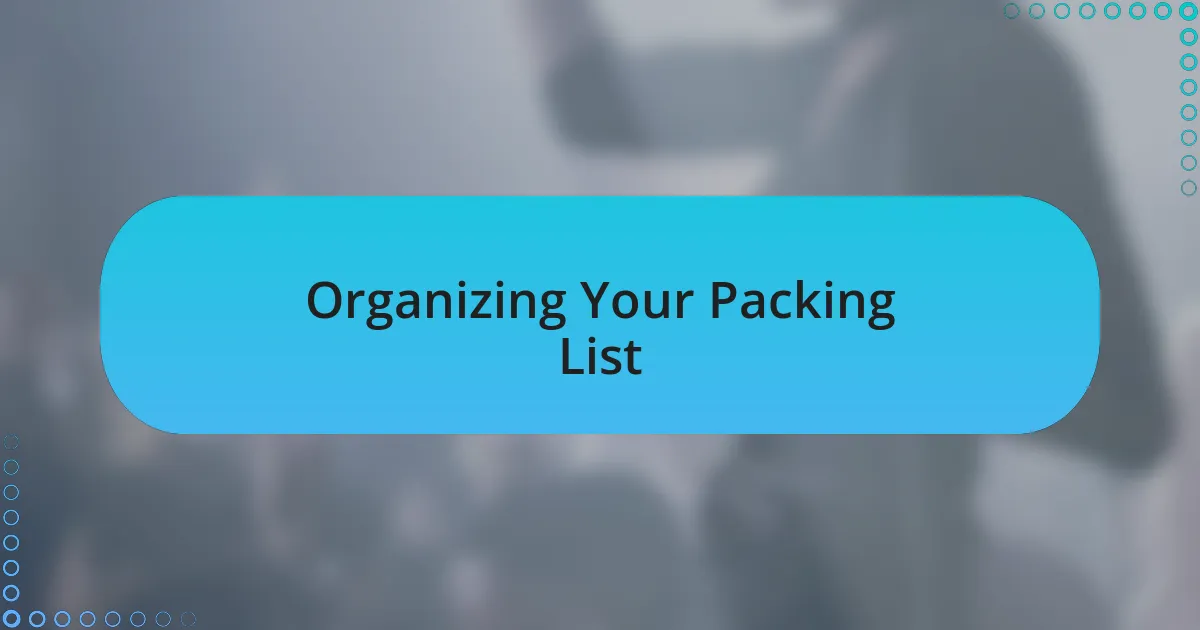Key takeaways:
- A music tour involves live performances, creating unique connections with fans that make each show memorable.
- Effective packing includes having essential gear and backups to prevent performance crises during tours.
- Organizing a packing list by prioritizing essentials and categorizing items enhances efficiency and reduces stress.
- Personal experiences highlight the importance of strategic packing and how it influences comfort and creativity on the road.

What is a Music Tour
A music tour is essentially a series of live performances by an artist or band, traveling from city to city, often to promote a new album or connect with fans. I remember the excitement of hitting the road with my band for our first tour, feeling like each venue was a new chapter in our journey. Isn’t it amazing how every city holds its own unique vibe, influencing the setlist and energy we bring to the stage?
Tours can last anywhere from a few weeks to several months, creating a whirlwind of experiences that go far beyond just the performances themselves. Each night, we’d be greeted by the cheers of our fans, their energy feeding into our performance. I often found myself asking, what makes each show special? The answer lies in the connection we forge with the audience, turning each concert into a memorable event.
Traveling as a band involves much more than music; it’s about discovering new places, meeting different people, and often facing unexpected challenges along the way. I remember a night in a small town where our equipment malfunctioned, and we turned it into an impromptu acoustic set, which turned out to be one of the most memorable moments. Isn’t it those surprises that truly shape a tour and create lasting memories?

Importance of Packing for Tours
Packing for a tour isn’t just about fitting everything into a suitcase; it’s about setting the stage for a smooth journey. I vividly recall our first big tour. I had forgotten to pack vital cables for our instruments, and it turned a dream into a mini crisis. This taught me that being prepared can make all the difference.
Every item you choose to bring can influence your experience on the road. I’m a firm believer that having the right clothes not only boosts your confidence but also affects your performance on stage. For example, wearing comfortable shoes during long travel days can keep your energy levels high and prevent fatigue, which is essential for those late-night gigs.
Moreover, packing wisely can protect against the unexpected pitfalls of touring life. One winter tour, I underestimated the cold and didn’t pack enough warm clothing, leading to sleepless nights and a sore throat. Reflecting on that, I always ask myself: am I prepared for all outcomes? This mindset shift towards strategic packing has helped me embrace the unpredictable nature of touring and focus more on the music and connection with our audience.

Essential Gear for Musicians
When it comes to essential gear for musicians, I can’t stress the importance of reliable instrument cases enough. I remember a night when we arrived at a venue, only to find my guitar’s case had been damaged during transit. The panic I felt was overwhelming; I had no backup instrument for the show. This experience taught me that having a sturdy case not only protects your gear but also helps ensure that you can perform confidently, regardless of travel mishaps.
Alongside instrument protection, I found that investing in quality headphones has been a game-changer for my practice and performance sessions. There was a time I brought along a cheap pair that ended up distorting sound during previews, making me second-guess everything. Now, I always pack my trusted headphones, knowing they provide the clarity I need to perfect my sound before hitting the stage.
Lastly, the impact of a well-stocked emergency kit can’t be overlooked. I recall a situation where a bandmate had a wardrobe malfunction during a gig; having some safety pins and a sewing kit saved the day. It’s these little things that can seem trivial until you’re in a pinch. Do you have an emergency kit ready for the road? I can assure you that having one not only brings peace of mind but also makes for a smoother tour experience.

Tips for Efficient Packing
When packing for a tour, I’ve learned that organization is key. I use clear packing cubes to separate my clothes and gear, which not only saves time during setup but also helps me avoid the dreaded rummaging through a disorganized mess. Have you ever lost precious minutes looking for that one crucial item? I certainly have, and it’s frustrating.
One packing tip I swear by is to create a checklist tailored to each trip. On one occasion, I forgot my power adapter for a weekend gig, which left me scrambling to find a replacement at an unfamiliar store. It was stressful and took my focus away from preparing for the performance. Now, I meticulously check items off my list before I hit the road, ensuring I have everything I need to stay focused and relaxed.
Lastly, consider the weight of your gear and luggage. I once packed way too many pairs of shoes, thinking I’d want more options. Instead, I found myself lugging around extra weight that I didn’t need. Now, I limit myself to two pairs that are versatile enough for both onstage and offstage moments. Have you ever had to reconsider what’s essential on tour? Trust me, traveling light will make a world of difference in your energy levels and overall tour experience.

Organizing Your Packing List
When organizing my packing list, I often start by prioritizing the essentials for each tour. I remember one time I didn’t pack a backup microphone cable, and it left me in a bind during soundcheck. This taught me the importance of redundancy—always have a backup plan, especially for items critical to the performance. Have you ever faced a similar situation where losing a small piece of gear created a big headache?
Next, I categorize my items into groups: personal, clothing, and equipment. This simple method has changed the way I approach packing. Recently, while trying to fit everything into my duffel, I realized how much smoother it was to pack when I kept my clothes separate from my tech. It’s like creating a little zone for each section of my life on the road. Why not try grouping your items next time?
Lastly, I like to visualize my typical day while packing. This practical tip often prompts me to consider whether I really need that extra jacket or if a single versatile layer will do. Picture this: a long day of traveling, rehearsing, and performing, and all you want is to feel comfortable and prepared. Have you thought about how your day-to-day activities on tour influence your packing choices? Understanding your routine can help refine what you truly need for your travels.

My Personal Packing Experience
When I pack for tours, I often find myself reflecting on past experiences that shaped my packing habits. I once neglected to pack my favorite pair of earplugs, thinking a night of loud music would be manageable. By the end of that evening, I regretted my decision, learning firsthand how essential those little items can be for both comfort and focus during a show. Have you ever realized too late that something seemingly small could have made a huge difference?
Another memorable packing moment occurred before a long trip when I mistakenly stuffed my bag with way too many outfits, thinking it would give me variety. Instead, I was lugging around extra weight that I barely used. Since then, I’ve learned to pack outfits that mix and match easily, letting me keep a lightweight bag while still feeling stylish. How do you decide what clothes to bring?
I also consider the emotional aspects of what I pack. For instance, I always bring a notebook for jotting down song ideas or thoughts that come to me on the road. It’s more than just a tool; it’s a connection to my creativity, and that little book has become a trusted companion. Isn’t it interesting how our packing choices can reflect not just our physical needs, but also our creative journeys?